Managing a remote workforce presents unique challenges for staffing agencies in Canada, particularly in the context of remote staffing. While remote work offers numerous benefits such as flexibility and access to a wider talent pool, it also brings forth several challenges that require careful navigation and proactive solutions.
Navigating Legal and Compliance Issues:
One of the primary challenges for remote workforce management agencies in Canada revolves around navigating legal and compliance issues. Canadian labor laws and regulations vary by province, and ensuring compliance with these regulations, especially in a remote setting, can be complex. From taxation and employment standards to privacy laws and workers’ compensation, staffing agencies must stay abreast of the legal landscape and ensure that their remote staffing practices adhere to all relevant regulations.
Ensuring Data Security and Privacy:
With remote work comes an increased risk of data breaches and privacy violations. Staffing agencies are entrusted with sensitive personal and corporate data, and ensuring its security and privacy in a remote environment is paramount. Implementing robust cybersecurity measures, such as encryption, secure network connections, and access controls, is essential to safeguarding against potential threats and maintaining the trust of clients and candidates alike.
Maintaining Effective Communication:
Effective communication is essential for successful remote workforce management, but it can be challenging to achieve, especially when working with dispersed teams and clients. Remote staffing agencies must leverage technology to facilitate seamless communication channels, ensuring that team members, clients, and candidates can collaborate effectively despite physical distance. Clear and consistent communication helps mitigate misunderstandings, build trust, and foster strong relationships.
Managing Performance and Productivity:
Monitoring and managing the performance and productivity of remote staff pose significant challenges for staffing agencies. Without the ability to directly observe employees in a traditional office setting, assessing performance becomes more challenging. Remote staffing agencies must implement performance tracking tools and metrics to measure productivity accurately and identify areas for improvement. Additionally, providing remote workers with the necessary support, resources, and training is essential to help them succeed in their roles.
Addressing Work-Life Balance:
Remote work offers flexibility, but it can also blur the boundaries between work and personal life, leading to burnout and decreased job satisfaction. Remote staffing agencies must promote work-life balance among their employees and encourage healthy boundaries between work hours and personal time. Offering flexible scheduling options, promoting self-care initiatives, and fostering a culture of trust and respect can help mitigate the negative effects of remote work on employee well-being.
Managing Cultural and Time Zone Differences:
In a remote workforce that spans across different regions and time zones, managing cultural differences and coordinating schedules can be challenging. Staffing agencies must be mindful of cultural nuances and adapt their communication and management styles accordingly. Additionally, implementing tools and strategies to facilitate collaboration and coordination across time zones is essential to ensure effective remote workforce management.
In conclusion, while remote staffing offers numerous benefits, it also presents several challenges for staffing agencies in Canada. By proactively addressing legal and compliance issues, ensuring data security and privacy, fostering effective communication, implementing performance management strategies, promoting work-life balance, and managing cultural and time zone differences, staffing agencies can navigate the complexities of remote workforce management and unlock the full potential of remote staffing opportunities.





